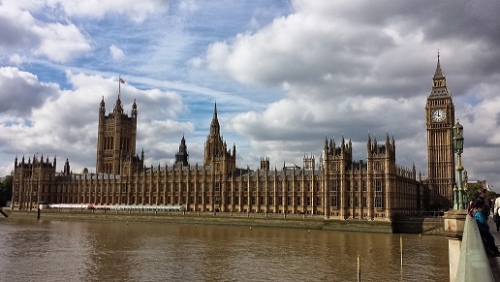Tax
EDITORIAL COMMENT: Let's Have Consistency In How HNW Individuals Are Treated

The UK government reportedly favours high-earners and persons from certain countries under a new immigration regime after the country quits the EU. But how does this fit with other policies on tax?
(This item is published across the WealthBriefing family of newswires as citizens living in multiple regions could be affected by the UK government's proposals.)
The UK government is reportedly thinking of favouring high-earners and those from particular nations – many of them English-speaking countries – as it rejigs immigration policy ahead of Britain’s departure from the European Union.
Whatever the merits of such a policy post-Brexit (this publication does not take an editorial view on Brexit) there appears to be a lack of “joined-up thinking” when it comes to making the UK more appealing to wealthy people.
To explain my point, a few days ago, Prime Minister Theresa May’s government suspended the country’s Tier 1 Investor Visa programme (available to those willing to pass over at least £2 million ($2.53 million)), with a view to possibly reinstating it in a few months’ time. While there have been legitimate compliance concerns about these “golden visa” programmes in certain nations, the move came as a jolt. The present Conservative government has hiked stamp duty on property deals, gone after foreign-owned property structures, and tightened the screws on the tax treatment of resident non-domiciled individuals. The top rate of income tax is 45 per cent, which may not be as eye-watering as in some countries, such as in France, but it is still hitting a lot of earners. (Compare that rate with those in the 20s, such as in Singapore or Hong Kong.)
The wealth management sector will obviously want to see affluent people encouraged to work in the UK, but it is also worth noting that the sector needs people with skills too – and not all of those are on large salaries. Entrepreneurs may not have a lot of cash but their ideas could be lucrative in the future. A constructive policy post-Brexit should ensure that the UK welcomes not just wealth, but talent and a work ethic, whether the UK adopts a “soft” exit (remaining in the Customs Union and retaining many other structures of the EU) or a “hard”, “clean” Brexit (leaving under World Trade Organisation membership terms).
Many entrepreneurs have started out being poor and have escaped from oppressive regimes, and the UK has a record of opening its doors to them. It is not just the smart thing to do, it is also the right thing to do.
Details at this stage remain sketchy, and of course any comment about government policy consistency needs to bear in mind that if a Labour government under its current hard-left leadership takes over, tax treatment of anyone deemed affluent, foreign or domestic, will be harsher.
For the moment, however, reports (Bloomberg, 17 December) on what is being proposed in Whitehall say that the government preference under the new passport regime “will be given to higher earners and people from favoured nations”. These nations are likely to be places whose citizens use e-passports to enter Britain: Australia, Canada, Japan, New Zealand and the US. To some degree, this looks like a sort of “Anglosphere” migration policy, part perhaps of a wider change in how the UK engages with the world in future.
Of course, expecting total consistency from policymakers about immigration policy or indeed anything else might seem a bit naïve. Even so, if the UK does want to signal that this country is very much open for business post-Brexit, and indeed intends to be even more global in its outlook, all parts of the state apparatus need to be pointing in the same direction.